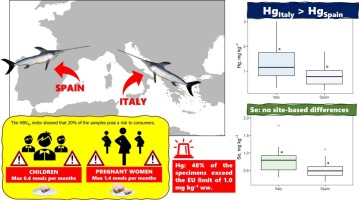The Mediterranean Sea (MS) represents a complex system that acts as a convergence zone for various biogeographical influences stemming from both temperate and tropical oceanic bodies. Its intricate topography has promoted speciation and adaptation, leading to the development of distinctive and varied marine sites. The MS has a greater total alkalinity than the open ocean, which allows it to absorb a larger amount of human-induced CO2 per unit of surface area, suggesting an increased threat of acidification. The Eastern Mediterranean (EM) region has been identified as a critical climate change (CC) hotspot; by the end of the 21st century, it is anticipated that heatwaves in the EM will occur more than seven times as often and last more than three times as long. Here, we provide an extensive literature review on the CC-induced impacts and threats on biota throughout EM and adjacent areas, supporting potential mitigation actions.
The key elements contributing to the impacts and threats posed by CC in the region are: ocean warming (OW), ocean acidification (OA), and the synergistic effects of OW and OA. Additional factors encompass the combination of: i) OW and marine heatwaves (MHWs), ii) OW and non-indigenous species (NIS), iii) OW and desertification, and iv) OW and water circulation. However, the primary factor causing biodiversity decline, not just in the EM region but throughout the entire MS, seems to be the introduction of NIS, which is further worsened by OW. The primary route through the Suez Canal (SC) and its continuous expansions have sparked worry about the rising propagule pressure. There is a growing consensus that if these environmental risks are not comprehended and mitigated, a significant portion of the Mediterranean ecosystem may face severe threats to its integrity.
Ultimately, the initiative of dumping brine waste into the SC, acting as a high salinity barrier that would reduce the transfer of new species carried by the currents, is likely a practical and attractive first step towards mitigation. We suggest that this action should be embraced not only by other countries but also by international environmental organizations and agencies, through a variety of strategies, including financial support. This initiative, along with other measures aimed at alleviating the impacts of invasions on biodiversity, ecosystem services, and health, is an essential next step in the process of mitigation.


Dining and Cooking